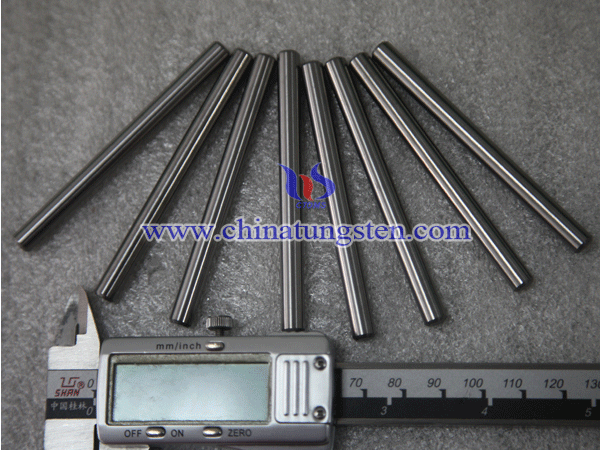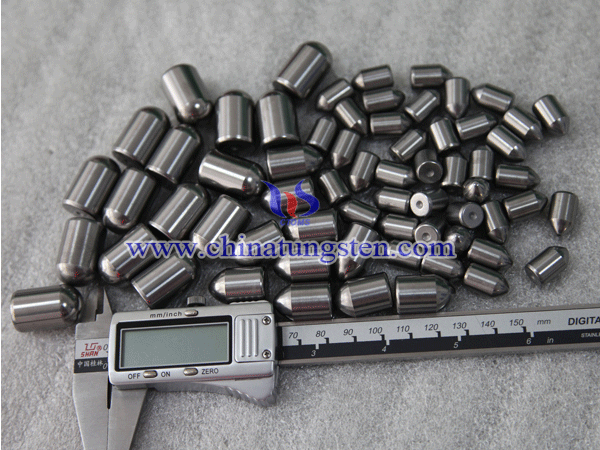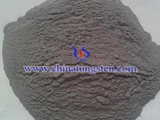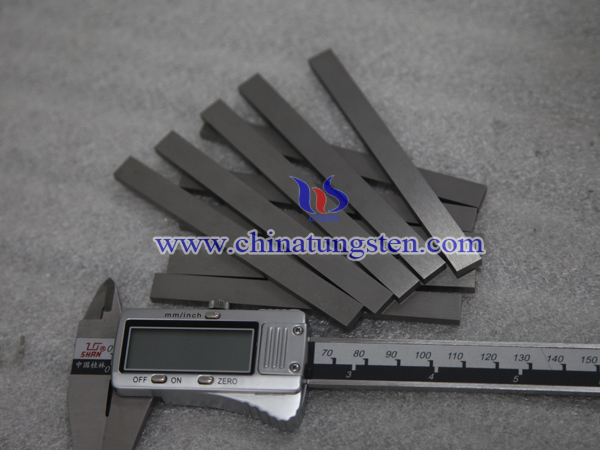Global Tungsten Carbide Market - Analysis & Forecast to 2022
- Details
- Category: Tungsten's News
- Published on Thursday, 23 March 2017 17:11
- Written by tang
- Hits: 728
The global tungsten carbide market, by value, is estimated to witness growth at a CAGR of 4.4% over the period 2016 to 2022. This growth in the market is attributed to the increasing demand for various applications such as metal cutting tools, wear parts, mining & drilling tools etc. and various end use industries like automotive, aerospace & defense, oil & gas, mining & construction, electronics etc.
Tungsten carbide is a highly dense material constituting of tungsten and carbon as their constituent materials. They exhibit significant properties like extreme hardness, toughness, wear & abrasion resistance, pressure resistance, and many more. The unique combination of these properties and their cost effectiveness have set them apart to be the ideal choice of many industry manufacturers.
China has been the leader in the supply of tungsten in the global tungsten carbide market. Since the resources of tungsten carbide are majorly located in China, the effect on the economy of China has negatively impacted the raw material (tungsten) supply to local and international market. Hence, this in turn will negatively impact the manufacturing of tungsten carbide from raw tungsten. Also, due to the slowdown of economy, the average selling price of tungsten have increased which has affected and hampered the volume production of tungsten carbide.
Key Topics Covered:
Executive Summary
1. Research Scope and Methodology
2. Market Dynamics
3. Competitive Insights
4. Industry Analysis
5. Global Tungsten Carbide Market, by Application
6. Tungsten Carbide Market Size by End Use Industry
7. Global Tungsten Carbide Market, by Geography
8. Company Profile

| Tungsten Carbide Supplier: Chinatungsten Online tungsten-carbide.com.cn | Tel.: 86 592 5129696; Fax: 86 592 5129797;Email:sales@chinatungsten.com |
| Tungsten News&Tungsten Prices, 3G Version: http://3g.chinatungsten.com | Molybdenum News & Molybdenum Price: http://news.molybdenum.com.cn |
Tungsten Carbide Market Drivers and Challenges Report 2021
- Details
- Category: Tungsten's News
- Published on Thursday, 23 March 2017 17:07
- Written by tang
- Hits: 614
The global tungsten carbide industry 2016 market research report is a professional and in-depth study on the current state of the tungsten carbide industry.
The report scrutinizes and analyzes the tungsten carbide market and shows a comprehensive evaluation of its evolution and its specifications. Another aspect that was taken into consideration is the cost analysis of the dominant products in the global tungsten carbide industry, keeping in mind the profit margin for the manufacturers.
Some of the major players in the global tungsten carbide market are: Sandvik, IMC Group, Kennametal Inc., China Minmetals, Xiamen Tungsten, H.C Starck, Durit Hartmetall, Ceratizit S.A, American Elements, Chongyi Zhanguan.
The report provides a basic overview of the industry including definitions, classifications, applications and industry chain structure. The tungsten carbide market analysis is provided for the international market including development history, competitive landscape analysis, and major regions development status.
Development policies and plans are discussed as well as manufacturing processes and cost structures. This report also states import/export, supply and consumption figures as well as cost, price, revenue and gross margin by regions (United States, EU, China and Japan), and other regions can be added.
The report focuses on global major leading industry players with information such as company profiles, product picture and specification, capacity, production, price, cost, revenue and contact information.
The wide range of useful properties of tungsten carbide have led to the development of a number of applications, many of which are paving their way towards practical and commercial applicability. There are lots of metal compounds that are heavily used for various applications across the planet, but there are none that possess the particular attributes of tungsten carbide. Hence, the market potential of tungsten carbide is extremely high in this regard.

Upstream raw materials, equipment and downstream consumers analysis is also carried out. What’s more, the Tungsten Carbide industry development trends and marketing channels are analyzed. Finally, the feasibility of new investment projects is assessed, and overall research conclusions are offered. In a word, the report provides major statistics on the state of the industry and is a valuable source of guidance and direction for companies and individuals interested in the market.
The report will help key players to better understand the competition’s strategies and will help in making strategic decisions.
ResearchnReports has released a new market research report to its comprehensive collection of research studies. This market research report, titled " Global Tungsten Carbide market professional survey report 2016", provides an in-depth analysis of this market, zeroing on the key dynamics estimated to influence the growth of the market throughout the forecast period. The product segmentation, important geographical segments and competitive prospect of the global almond oil market are also mentioned in this research study.
The report is a compilation of different segments of global tungsten carbide market including market breakdown by application, end use industry and geographical location. It also includes sections on competitive insights and market dynamics. Herein the revenue generated from tungsten carbide is tracked to calculate the market size.
While highlighting the key driving and restraining forces for this market, the report also provides a comprehensive section of the application areas of the tungsten carbide market. It also details the key participants involved in the industry.
Table of Contents
1 Tungsten Carbide Report Overview
2 Executive Summary
3 Market Overview
4 Competitive Insights
5 Industry Analysis
6 Global Tungsten Carbide Market by Technology
7 Global Tungsten Carbide Market by Ecosystem Players
8 Global Tungsten Carbide Market by Therapeutic Applications
9 Global Tungsten Carbide Market by Geography
10 Company Overview
11 List of Acronyms
About Research N Reports:
Research N Reports is a new age market research firm where we focus on providing information that can be effectively applied. Today being a consumer driven market, companies require information to deal with the complex and dynamic world of choices. Where relying on a sound board firm for your decisions becomes crucial. Research N Reports specializes in industry analysis, market forecasts and as a result getting quality reports covering all verticals, whether be it gaining perspective on current market conditions or being ahead in the cut throat global competition. Since we excel at business research to help businesses grow, we also offer consulting as an extended arm to our services which only helps us gain more insight into current trends and problems. Consequently we keep evolving as an all-rounder provider of viable information under one roof.
| Tungsten Carbide Supplier: Chinatungsten Online tungsten-carbide.com.cn | Tel.: 86 592 5129696; Fax: 86 592 5129797;Email:sales@chinatungsten.com |
| Tungsten News&Tungsten Prices, 3G Version: http://3g.chinatungsten.com | Molybdenum News & Molybdenum Price: http://news.molybdenum.com.cn |
Should China Prohibit Tungsten & R.E. To Japan?
- Details
- Category: Tungsten's News
- Published on Wednesday, 08 March 2017 11:59
- Written by TungstenAlloy
- Hits: 827

In accordance with Japan Economic NEWS, METI (Minister of Economic Trade and Industry) would review the relevant act in order to prevent the high technology leaking oversea. They are planning to submit the draft of the foreign exchange act in the congress.
How is Performance of China 99A Main Battle Tank?
- Details
- Category: Tungsten's News
- Published on Sunday, 12 March 2017 17:22
- Written by TungstenAlloy
- Hits: 917

Recently, a German ranking list on the world's main battle tanks has aroused the concern of many experts in the world. Owning to unit weight 55 tons, 120mm main gun and 1600 horsepower, Germany's "leopard 2" won the world's first rank.
Read more: How is Performance of China 99A Main Battle Tank?
Global Cemented Carbide Sales Industry Available in New Report
- Details
- Category: Tungsten's News
- Published on Tuesday, 07 March 2017 17:08
- Written by tang
- Hits: 591
The global cemented carbide sales industry 2017 market research report is a professional and in-depth study on the current state of the cemented carbide sales industry. With around 150 tables and figures this report provides key statistics on the state of the industry and is a valuable source of guidance and direction for companies and individuals interested in the market.
Development policies and plans are discussed as well as manufacturing processes and Bill of Materials cost structures are also analyzed. This report also states import/export consumption, supply and demand Figures, cost, price, revenue and gross margins.
Global cemented carbide sales market report provides a basic overview of the industry including definitions, classifications, applications and industry chain structure. Upstream raw materials and equipment and downstream demand analysis is also carried out.
The cemented carbide sales industry development trends and marketing channels are analyzed. Finally the feasibility of new investment projects are assessed and overall research conclusions offered.
Table of Contents:
1 Industry Overview of Cemented Carbide Sales
2 Manufacturing Cost Structure Analysis of Cemented Carbide Sales
3 Technical Data and Manufacturing Plants Analysis of Cemented Carbide Sales
4 Capacity, Production and Revenue Analysis of Cemented Carbide Sales by Regions, Types and Manufacturers
5 Price, Cost, Gross and Gross Margin Analysis of Cemented Carbide Sales by Regions, Types and Manufacturers
6 Consumption Volume, Consumption Value and Sale Price Analysis of Cemented Carbide Sales by Regions, Types and Applications
7 Supply, Import, Export and Consumption Analysis of Cemented Carbide Sales
8 Major Manufacturers Analysis of Cemented Carbide Sales
9 Marketing Trader or Distributor Analysis of Cemented Carbide Sales
10 Industry Chain Analysis of Cemented Carbide Sales
11 Development Trend of Analysis of Cemented Carbide Sales
12 New Project Investment Feasibility Analysis of Cemented Carbide Sales
13 Conclusion of the Global Cemented Carbide Sales Industry 2017 Market Research Report
| Tungsten Carbide Supplier: Chinatungsten Online tungsten-carbide.com.cn | Tel.: 86 592 5129696; Fax: 86 592 5129797;Email:sales@chinatungsten.com |
| Tungsten News&Tungsten Prices, 3G Version: http://3g.chinatungsten.com | Molybdenum News & Molybdenum Price: http://news.molybdenum.com.cn |






 sales@chinatungsten.com
sales@chinatungsten.com